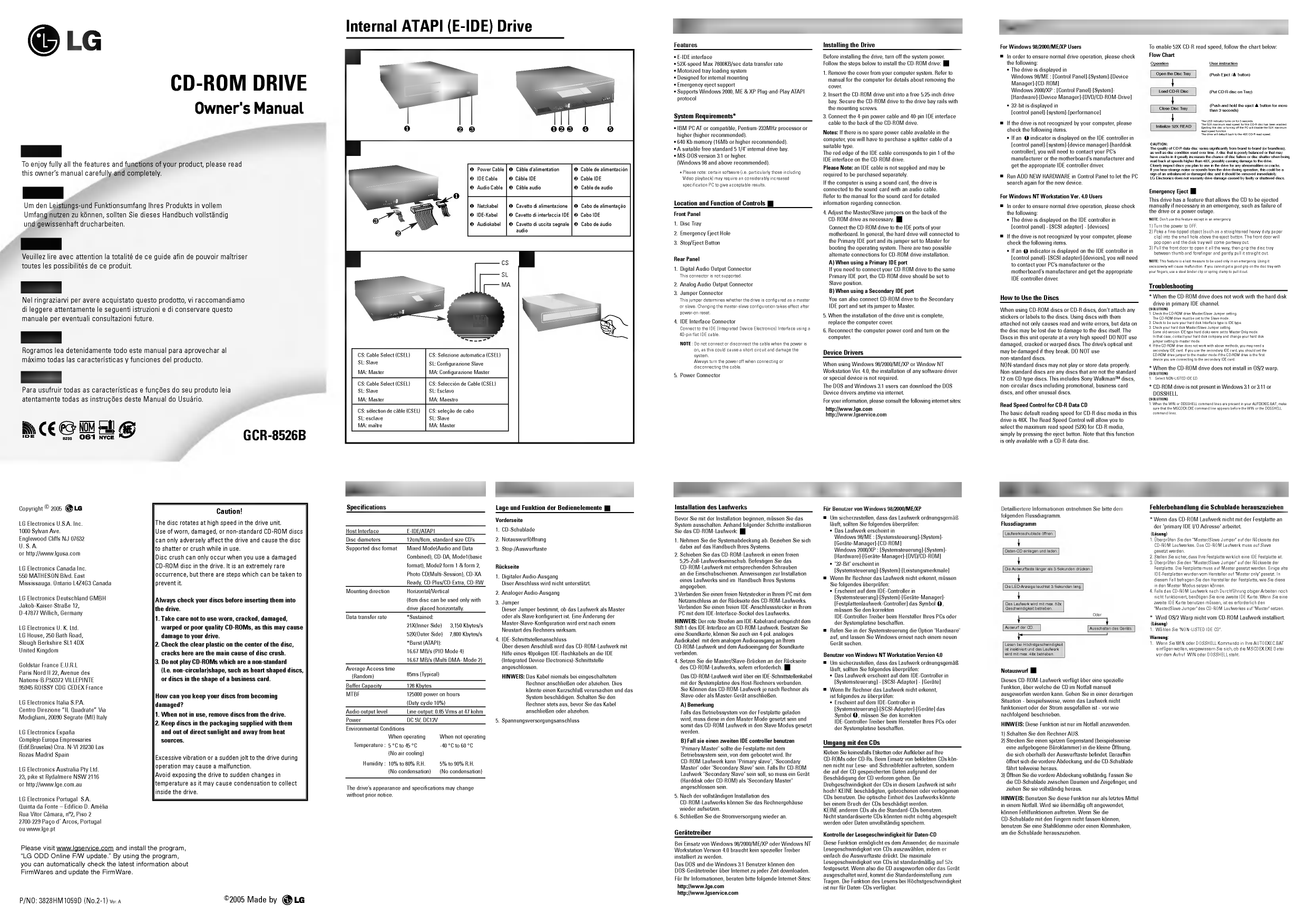

#LG CD ROM CRD 8483B DRIVER#
You can call the file something other than "cdr", just so long as it's there.īy removing that file from /etc/modules.d, or by commenting the options line out, you should be able to go straight back to the regular IDE driver for your devices. That should ensure that that line is sourced into the nf file every time the computer boots. Instead, do this: Code:Įcho "options ide-cd ignore='hdc hdd'" > /etc/modules.d/cdr Not so fast though! I forgot to mention that nf in Gentoo is dynamically generated, so you really don't want to edit the nf file directly to add the exclusion line mentioned above, otherwise it'll get nuked at the next reboot. Of course, you don't have to run a regular CD-ROM (not CD-R) device with SCSI emulation if you don't want to, but I suspect it would be beneficial for on-the-fly CD duplication. You'll probably want to add that module to your /etc/toload file so that it loads automatically. Notice how it was possible to probe the CD-R device without having to be a superuser, thanks to the magic of devfs. Now all that is necessary for your CD-R device to be detectable is to load the ide-scsi module: Code:Īnd your CD-R device should show up to prove it's working. Usermod -g kerframil -G cdrw,users kerframil Now send a SIGHUP signal to devfsd so that it reloads the configuration: Code:Įnsure that your user account is a member of the "cdrw" group. #REGISTER ^scsi/host.*/bus.*/target.*/lun.*/generic PERMISSIONS root.cdrw 660Īnd remove the # symbol from the beginning of the line so that it is no longer commented. Simply search for the following line in your nf: Code: You'll probably want to change your /etc/nf file so that non-root users can probe and use the CD-R device without jumping through hoops. If it isn't loaded for you, then load it manually as thus: Code: Upon rebooting, the sg device should be loaded for you (use lsmod to confirm). You can change the device name as necessary for exclusion. This simply tells the ide-cd module (which would otherwise drive your CD/CD-R devices) to ignore /dev/hdc and /dev/hdd, one of which is normally going to be your CD-R device. Now here's the trick (you may as well do this before you reboot):Īdd a line to your /etc/nf as follows: Code: OK, now recompile and enable your kernel and modules in the usual fashion.
#LG CD ROM CRD 8483B CODE#
Here's how I did it (note that you are assumed to be root in all code examples except where an su command is shown):įirst, compile your kernel with the relevant options (I compiled them as modules in all cases, except where noted):Įnable Vendor-Specific Extensions (this is a simple 'Yes' option, no module)


You can compile all of the related kernel features as modules (meaning you can go back to regular IDE support without recompiling your kernel) and there is no requirement to modify your bootloader. hdc=scsi)In fact, neither of these statements is true.

I just wanted to dispel a few myths about enabling SCSI emulation for IDE devices, that is, setting up Linux so that you can use an IDE CD burner. That could mean that we Linux users no longer have to use this SCSI emulation madness to burn CDs on IDE burners, as BSD users have been able to for some time with burncd!Type: Code:įor more info after emerging the new version. EDIT: Hooray! cdrtools-2.0 is out and guess what, is has ATAPI transport support. Posted: Mon 2:31 pm Post subject: Kernel SCSI emulation for CD burning - the truth Gentoo Forums Forum Index Documentation, Tips & Tricks Kernel SCSI emulation for CD burning - the truth Gentoo Forums :: View topic - Kernel SCSI emulation for CD burning - the truth


 0 kommentar(er)
0 kommentar(er)
